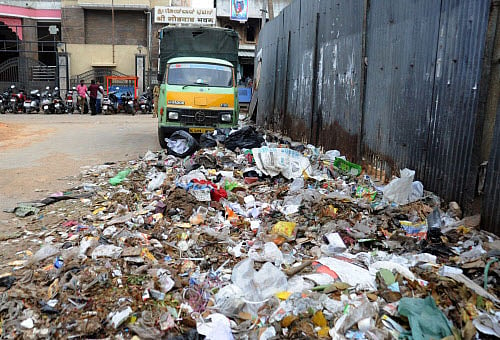
In the run-up to the 15th Delhi Sustainable Development Summit scheduled for February, experts from diverse backgrounds on Tuesday deliberated on smart and sustainable solutions for Bangalore to make it a ‘smart city’.
As a prelude to the global event, a series of regional dialogues are being organised, first of which was held on Tuesday. The regional dialogue focused on themes like Smart Solutions for Sustainable Cities: Planning, Implementing and Building Capacity, and Clean and Smart Technologies.
Experts agreed Bangalore is in dire need of smart waste management systems, access to clean water and energy, and regulatory mechanisms to check the worsening air quality. A highlight of the event was the webcast done with Dr R K Pachauri, director general, TERI (The Energy and Resource Institute), and the participants and experts.
Pachauri said building 100 smart cities was an exciting challenge. “We should just take out the spillover effect and spread it smartly across the country.”
He stressed having smart transport infrastructure. “We should have intelligent transport policies in cities for making public transport viable and can considerably increase sustainability,” he added. Representatives of over 30 companies and senior officials, academicians and citizens took part in the dialogue.
M Ramachandran, former secretary, Union Ministry of Urban Development, said: “What would be critical in taking the agenda forward would be what aspects of citizen interests’ will get covered first and how people-centric the system would be.”
C N Raghupathi, VP and Head India Business Unit, Infosys, said, “Digital technologies, sensors and the communication revolution are finally going to come together to impact people’s day-to-day life in smart cities. By 2030, cities will be so different from the cities of today.”
K Jairaj, Karnataka’s former Additional Chief Secretary, said, “Sustainability has to be the sine qua non of modern and current-day existence, and the challenge is to forge a consensus and execute a plan to create smart cities.”
Priyansh Dixit, Smarter Cities Programme Director, IBM, said, “Building intelligence over instrumentation layers like CCTV, GPS and flow meters is critical to the success of smarter city initiatives.”
]
